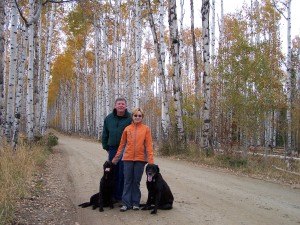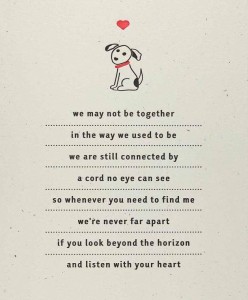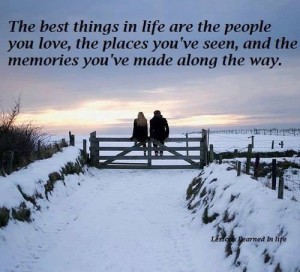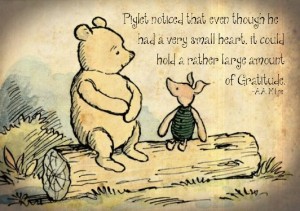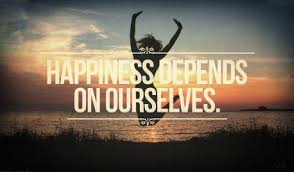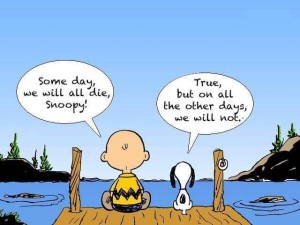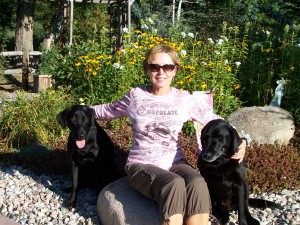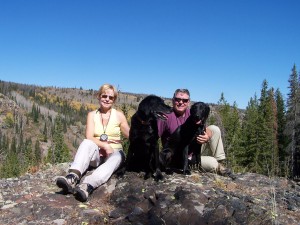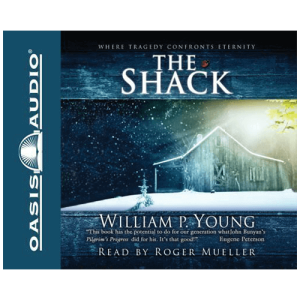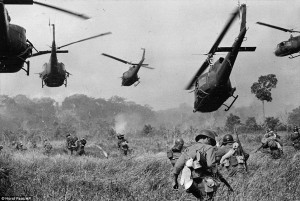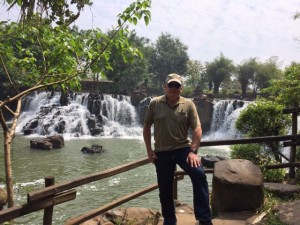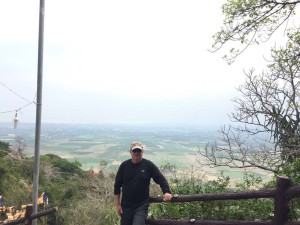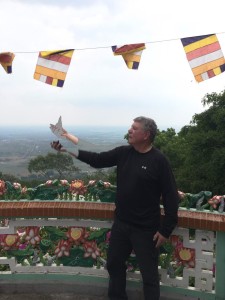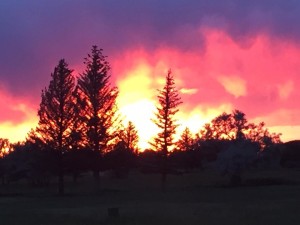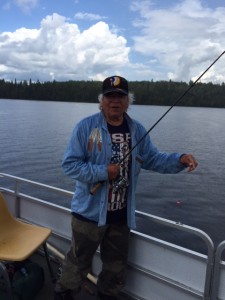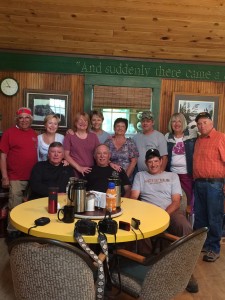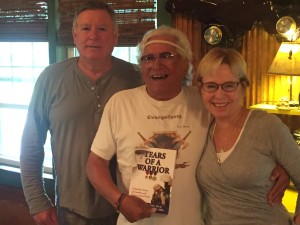Mar
1
Settling into the Year 2018
Filed Under Aging, American Patriotism, Bless Our Troops, Courage, Dog is God, Dogs, Family, Happiness, Happy New Year, Journey, Love, Service Dogs, TBI & PTSD, Tears, Tears of a Warrior, Veterans | Comments Off on Settling into the Year 2018
by Janet J. Seahorn, Ph.D
Now that we’re well into the New Year, and thinking about moving forward into a year of fresh beginnings. Remembering and preserving old friendships, being aware and grateful for an abundance of goodness, people, health and purposeful work that occupy our days can offer a sense of optimism. Yet, most important, having a richness of love in our lives – love of family (yes, even those that sometimes drive us nuts), love (and loss) of endearing pets, love of neighbors and friends, and love of something within and above us that help to guide us through the darkness.
For some that light may be almost infinitesimal dim. Bob Woodruff, a well-known journalist and author who suffered a devastating brain injury from an IED while covering the military in Iraq wrote in his book “In an Instant“, “First you must touch the black and then go back up to the light.” It was his way of “acknowledging that you have to let the fear in, but to dwell on the fear will only cripple you. You need to move back into a world of hope.”
There is no denying that 2017 was a year of great challenges and loss for many, and 2018 hasn’t been easier with the recent death of our beloved service dog, Bailey. Family members, treasured pets and very dear friends are no longer with us. Saying goodbye has never been easy even when we recognize that it is for the best (at least for that loved one).
However, we are trying hard to center on the plentiful blessings in our lives. The old saying, “It is just as easy to focus on being positive as it is to be negative”, every so often can seem like a big bowl of crap. Advice to the reader – listening can be more important than trying to comfort an individual by making comments such as “Suffering builds character”. I’ve never believed that old cliché. I think suffering reveals character more than builds it. Sometimes, we simply need to allow ourselves and others to grieve, to be sad, and to nurture our physical and emotional selves.
Nonetheless, I still believe that life is worth the time to live fully and with resolve. I still believe that most people are generous and decent. I still believe that compassion trumps unkindness and hate generates more cruelty in a world already filled with too much bitterness. I still believe that truth is more important than ever to counteract the deceit and false narratives of which others try to convince us. And, more than ever, I still believe in hope, for without hope it would be hard to wake up each morning with a sense of joyfulness.
Lastly, for our veterans, first responders and their families we wish you a year filled with peace, prosperity, and well-being.
You’ve sacrificed enough.
Daily count your blessings and know how precious those special moments can be.
Now it’s time to enjoy an exceptionally amazing New Year.
Mar
26
GETTING UNSTUCK
Filed Under Black Lions, Combat PTSD, Courage, Events, Faith, Family, Healing, Hope, Journey, Love, Pain, Peace, PTSD, Return To Vietnam, Tears of a Warrior, Veterans, Vietnam Today, War | Comments Off on GETTING UNSTUCK
by Janet J. Seahorn, Ph.D
It isn’t easy to move forward in life when you seem trapped by events that happened in the past. Often times the harder you try to get unstuck, the more bound you become to that very past. So how does one resolve such a dilemma? It probably won’t be without effort, time, and even some painful moments.
In the book/movie, The Shack, the lead character is tormented by an unimaginable personal tragedy. No matter how hard he tries to move forward beyond his pain and horrendous memories, he can’t. Being caught in a terrible incident he is unable to see past his pain to the extent that very little joy or happiness can enter his life. In order to heal he is forced to go back to the place (the shack) where he got stuck; the place where the horror, the anguish, and the future was taken from him.
I think this is what Tony was doing when he decided to return to Vietnam. In order to heal more completely he made a choice to go back to the place where he became stuck, a space that over the last many decades unconsciously became his “shack”. Since his military service in Vietnam he has worked incredibly hard to move beyond the memories and the demons, but there were still times when the burden of combat obscured his vision and ability to live fully. As part of the healing process he had to exhume the old earth in order to plant and allow for new growth to occur. He will be explaining more in his future blogs.
Toward the end of the movie there was a beautiful metaphor about life. A truism that most of us already know…. life is not neat or precisely organized. It is messy, bumpy, and often unbalanced. Yet, it is this very assortment of messiness and disorder that make us who we are and who we can become if we are brave enough to return to our “shack” to become unstuck.
So what is your “shack”? What might you do to become “unstuck: (that doesn’t mean you have to physically return to a specific location to heal). Just know that this “becoming unstuck” will most likely not be easy, orderly, or without some deep potholes. It is a journey, like Tony, you may need to take alone. However, the reality is that you will not be totally on your own. Like Tony you will have the thoughts, prayers, and support of family and friends that will accompany you in spirit and hope.
Oct
10
Healing with Awe
Filed Under Combat PTSD, Faith, Healing, Journey, Nature, Peace, PTSD treatment, Tears, Tears of a Warrior, Treating PTSD, Veterans | Comments Off on Healing with Awe
by Tony Seahorn
We often talk and write about spending time in nature as an important element of the healing process.
For those with Post Traumatic Stress (PTSD or more accurately PTS), finding solace in natural places helps us realize and appreciate the marvelous wonders of the world.
Following is a link to an article that appeared this weekend in Parade Magazine worth reading.
Living in awe…
http://parade.com/513786/paulaspencer/feeling-awe-may-be-the-secret-to-health-and-happiness/
Aug
25
VINCE THE PRINCE
Filed Under Courage, Faith, Fishing Therapy, Healing, Healing Waters, Journey, Life, Love, Military, Peace, PTSD, Rushing Wind, Tears of a Warrior, Wounded Warriors | Comments Off on VINCE THE PRINCE
By Janet J. Seahorn, Ph.D.
Once upon a time there was a very young boy who lived an incredibly difficult childhood. He was the oldest son of a family of five children – two younger sisters, one brother and a step brother. At eleven years old he became homeless, kicked out of his family by an abusive father. Drinking and beatings by his dad were endured on a regular basis. For five years he lived on the streets until he was old enough to join the army (1956-1965). Being of Navaho Indian decent, Vince the Prince was a fledgling warrior, and warriors always fight with perseverance and courage.
However, the trauma of his early childhood experiences followed him into the military. He was always in trouble, and believed he would get shot, knifed, or killed in prison. Life was pretty hopeless. Anger often consumed him, a normal coping mechanism many children of abuse use to mask their pain and unpredictable daily circumstances. But, Vince the Prince was a survivor, often called a “smart ass”. Being tough kept him alive, and being enraged kept him “feeling”.
How does a person ever survive such a life? According to Vince the Prince in 1970 he found faith in the spirit of the Lord, and this discovery saved him. Talking with him was pretty amazing as he could quote scriptures from the Bible better than most clergy. His personal commitment to the Lord handed him the hope that he lacked in his younger years and offered him a purpose in how he would live the rest of his life. In 1973 Vince was ordained as a street Evangelist. His parishioners were those confined to the jails and prisons in Chicago. He worked with the street people offering kindness, optimism, and faith. Having this new mission made him think of others before himself. He was no longer in the survivor mode, but in a vocation of serving those who, like him in his early years, were crushed by life experiences far beyond the control of a young boy. In 1983 he even completed his GED after having only a fifth grade education. Yep, pretty darn remarkable.
I asked him at the end of one of our conversations “What has been your greatest lesson?” His response, “No matter who or what you are, in God’s eyes you are precious.” And, ‘When all else fails turn to Jesus.”
Vince the Prince continues to work with young teens, many who are homeless like he was in his early years. Who better to understand their struggles, their fears, and their despair? Who better to provide a sense that no matter how dire your circumstances may seem there is always hope and that hope can lead to a miraculous future. Living life with purpose and a wicked sense of humor make Vince the Prince a very special human, indeed.
(I recently spent a week with Vince at a remote fishing camp in Canada called Rushing Wind. Tony and I were invited to work with veterans who have experienced the effects of combat and are finding ways to heal from the wounds of war.)
Listen peacefully to the wild call of the Loon.
Dec
24
Having a Happy Holiday
Filed Under American Patriotism, Bless Our Troops, Christmas, Family, Healing, Holiday Season, Journey, PTSD, Tears of a Warrior, Veterans, War | Comments Off on Having a Happy Holiday
by Janet J. Seahorn, Ph.D
It has been several months since I wrote the last blog. Honestly, I chalk it up to lack of motivation and simply feeling I had little else to say that would be worth anyone taking the time to read. Some individuals even commented on how many of the past blogs were a bit depressing. No kidding! Many of these individuals may have never had the combat experience or served in the military. It is difficult to understand something that has not been experienced. Humor at times can be difficult, especially during the holidays when you live with a person suffering with Post Trauma Stress. The experience is so not funny.
Yelling at those who don’t seem to appreciate or understand this type of suffering would definitely be something I’d have to mention in my next visit to church and confession. Just hope it might be a different priest who won’t say something like…. “Well, seems like you haven’t made much progress in this area”.
At this point my entry into heaven would be further compromised. At the very least I would be on Santa’s naughty list.
So, why am I writing a new blog now? Because it is Christmas. My favorite holiday (along with Easter, Thanksgiving, Valentine’s Day…). Really, I love the smell of the season, the food, the lights in and outside of homes, carols, and the various displays around town. Unfortunately, as much as I love Christmas, I am reminded of how many of our veterans find this particular time of year a huge challenge. Christmas may be an unpleasant reminder of all that was lost – those who never returned home and those still serving in harm’s way far from home. Depression, anger, feeling alone and removed could be emotions that have to be dealt with once again. It is hard to be jolly or even be around those who are jolly when you are fighting to just keep your head above the waters of Merriment.
Tonight Tony was talking on the phone with a friend and veteran who was facing another season of cheer and trying to simply get through it and keeping his emotions/temper in check. During the conversation Tony mentioned that it was this time of year when he was in Vietnam and severely wounded. He lost many of his men during a horrendous battle and later spent months in various military hospitals trying to heal from his injuries. All these decades later it is not the physical wounds that test him the most. It is the emotional aches that make the holiday season taxing. Instead of all the Ho, Ho, Ho,….. I know that certain days he wants to scream, No, No, No More!!!
For years I had no idea of what he faced or continued to face. My delight during this time of year only exacerbated his loss thus causing more than one argument. Now that we both know better, we finally do better. I try to be a bit calmer in front of him, and he tries to take better care of his emotional needs by having more quiet time, going on long walks or taking Bailey pheasant hunting. And both of us focus on counting our blessings.
We’ll be darned if we let the PTS Grinch steal Christmas ever again.
Jul
12
CHASE’S MEADOW
Filed Under Aging, Dogs, Family, Fishing Therapy, Healing Waters, Journey, Life, Love, Peace, Pets, PTSD, Service Dogs, Tears of a Warrior, Tears of Joy, Veterans | Comments Off on CHASE’S MEADOW
by Tony & Janet Seahorn
The human heart and mind are amazing in their capacity to experience intense sadness and abundant gratitude at the same time. That lump in the throat is still there as are the tears that cloud my eyes. Yet, the weight of the death of our wonderful Chase seems to be a bit lighter.
Earlier this week, we visited Chase’s most beloved mountain meadow, high on the Snowy Range in southern Wyoming. It is a beautiful, alpine meadow filled with wild flowers and a running brook. This is the place we chose to spread his ashes and place a stone memorial on a wooded ridge overlooking the peaceful valley below.
We promised to make this journey after the early summer snow melt and before the wildflowers were in full bloom.
His very essence now glides in the winds and rolls gently with the flowing water. White and yellow flowers line his final path. He is at peace, as are we. And younger brother Bailey still romps through the brightly colored grasses chasing after his cherished tennis ball – a reminder that joy is always present around and within our souls.
As we paid our final respects it seemed as if Chase was giving us his final message:
I am now in my meadow; my ashes white as angels’ wings float with the Wind and flow through the mountain streams to places I never ran in life.
Peace and beauty will always surround me with a green and white and purple blanket of sweet columbines.
This is where I was finally meant to be.
Therefore, honor me not with tears of sadness, but with hearts of joyfulness.
Remember me with stories and laughter.
And most of all know that as much as you loved me I loved you even more.
Black Forest Chase
April 23, 1999 – January 4, 2013
May
2
Warrior’s Journey Home
Filed Under American Patriotism, Combat PTSD, Events, Healing, Journey, PTSD, Tears of a Warrior, Veterans, Warriors Journey Home, Wounded Warriors | Comments Off on Warrior’s Journey Home
by Janet J. Seahorn, Ph.D
Religion does not heal. People heal people. They do it through love, generosity and acceptance. Look. Listen. Heal. Oh so simple yet so difficult to achieve.
For four days we were with a group out of Canton, Ohio who were conducting a conference called the Warrior’s Journey Home. It started with the interesting collaboration of a church pastored by Dr. John Schlup and a Seneca wise woman, Shianne Eagleheart. Through Shianne’s sharing, she taught several members of the congregation the spiritual and physical healing of the Healing Circle. My brother, John, has been a living example of the power of Native American spiritual customs and blessings in Hot Springs, South Dakota.
The purpose of the Healing Circle is to give an individual a safe, nonjudgmental place to be – to listen – to learn and to share his/her trauma experience(s). Sharing is not an expectation like in many traditional therapy groups. It is merely an invitation if one is inclined to disclose his/her words. The sharing is only for those in the circle to hear. Stories must never be disclosed beyond the circle unless given permission by the person speaking.
So here is the really cool part of the sharing, there is a hand carved stick that looks like a walking stick. However, this stick is truly special because the only person who can speak is the person holding the talking stick. There are no time limits a person has to hold the stick and no one can get up and take the stick from that person. When the speaker is through disclosing his story he will place the stick back in its place or hand it to another person.
Oh, and another powerful trait of a Healing Circle is questions are never asked of the speaker. Wow, unlike modern therapy, there is no interrogation, advice, or “extra” comments. One may be given a hug or a small a glass of water by a listening member, but that’s it. By moving through the circle an environment of listening and caring is generated. Perhaps this is why the Healing Circle is such a special experience for veterans.
To make the experience even more powerful a drum and drummers may be present. Shianne’s partner, Bob honored the group with his handmade drum. Healing Circles often begin with native songs and drumming. The beat of the drum mirrors the rhythm of the heart. This mimics the ancient ceremonies meant to simulate a mother’s heartbeat when the warrior was in her womb. It calms the thoughts and anxieties of the attendees, and gives each person a way to begin and end the Circle experience. Like the mystical poet, Rumi, advises, the circle empowers many thoughts:
“What you seek is seeking you.”
“Most people guard against going into the fire, and so end up in it.”
One of my favorite old Chinese proverbs says it all,
“You cannot prevent the birds of sorrow from flying over your head, but you can prevent them from building nests in your hair.”
Jan
21
SOMETHING TO THINK ABOUT
Filed Under Aging, Healing, Healing Waters, Hope, Journey, New Year, PTSD, Tears of a Warrior, War | Comments Off on SOMETHING TO THINK ABOUT
by Janet J. Seahorn, Ph.D
As an English major I had to read endless novels, poetry, and short stories from a huge number of authors across all countries and eras. One that was always fascinating for me and others has been the story of the Odyssey by the Greek poet C. P. Cavafy. Ithaka was the island home of Odysseus. Since this is the beginning of a New Year, thinking about your personal Odyssey may be quite interesting. What journeys stand out in your life? During your journeys what challenges did you face and meet? And most important, it is not the outcome of the experience that is important but the lesson(s) you learned from them and how those lessons impacted your life, hopefully for the better.
Like Odysseus, what are you searching for in your journey? Sometimes it is not what we seek out that enriches our life, but what unexpectedly appears during our travels.
Ithaka
C.P. Cavafy
As you set out for Ithaka
hope the voyage is a long one,
full of adventure, full of discovery.
Laistrygonians and Cyclops,
angry Poseidon-don’t be afraid of them:
you’ll never find things like that on your way
as long as you keep your thoughts raised high,
as long as a rare excitement
stirs your spirit and your body.
Laistrygonians and Cyclops,
wild Poseidon-you won’t encounter them
unless you bring them along inside your soul,
unless your soul sets them up in front of you.
Keep Ithaka always in your mind.
Arriving there is what you are destined for.
But do not hurry the journey at all.
Better if it lasts for years,
so you are old by the time you reach the island,
wealthy with all you have gained on the way,
not expecting Ithaka to make you rich.
Ithaka gave you the marvelous journey.
Without her you would not have set out.
She has nothing left to give you now.
And if you find her poor, Ithaka won’t have fooled you.
Wise as you will have become, so full of experience,
you will have understood by then what these Ithakas mean…


